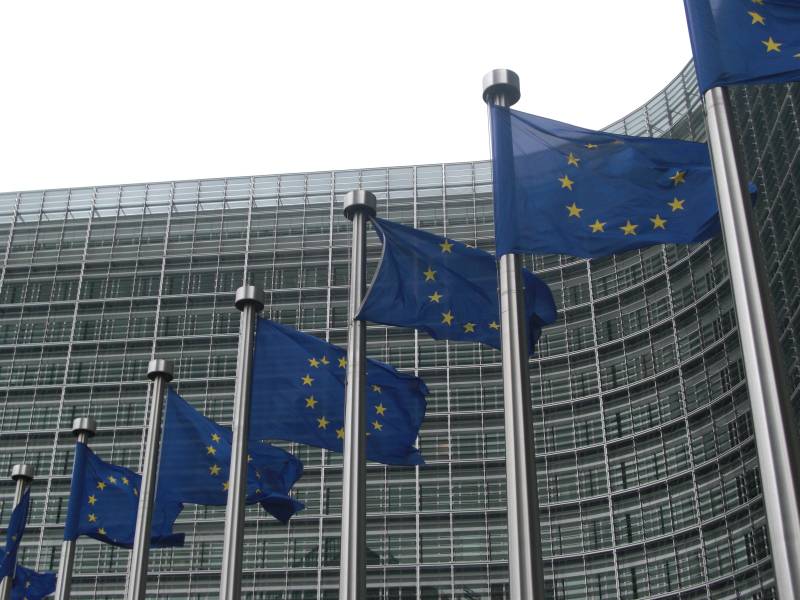
The fate of the world’s most widely-used weed killer - an issue which has pitted Europe’s farming sector against green activists - is expected to come to a head tomorrow.
The issue of whether or not to renew glyphosate has been seen as one of the most intensely political policy debates outside of Brexit.
The meeting by the Standing Committee on Plants, Animals, Food and Feed (SCoPAFF) on Thursday (9 November) at the European Commission follows an initial round of votes by Member States that commenced on October 25, which failed to come to a conclusion.
Following years of research and repeated delays, a decision is expected about whether to renew the license that allows the use of glyphosate within the EU.
Glyphosate has been widely used by UK farmers for weed control over the past 40 years in place of intensive manual weeding.
A report by Oxford Economics, with agricultural specialists the Andersons Centre, found that a glyphosate ban could cost British farmers almost £1billion.
It found that a ban could lead to a reduction in farm output of £940 million and reduce the contribution of agriculture to UK GDP by £930 million a year.
In France, a ban could mean a €930 million cut to its GDP and a €969m GDP reduction in Spain.
Safe for consumers
The EU’s own European Chemicals Agency (ECHA) and European Food Safety Authority (EFSA), along other national regulatory agencies, including Germany’s BfR, have all found glyphosate to be safe for consumers.
Yet the French, German and Italian governments are reportedly against a renewal.
Despite the government's who are against the renewal, farm groups across the EU are threatening to sue the European Commission if it fails to decide on a vote to grant glyphosate a new licence.
Nevertheless, the situation will come to a head in tomorrow in Brussels, when the European Commission’s Standing Committee on Plants, Animals, Food and Feed (SCoPAFF) will meet to decide the fate of British farming.
A number of member states, who have long argued for science-based decisions, are now understood to be indicating they will not accept any further dilution of the Commission’s current five-year renewal proposal. These states are believed to include Romania, Ireland, UK, Poland and Spain.
This means that a failure to accept the Commission’s latest proposal could lead to deadlock at tomorrow's meeting, with the French demanding further moves on an already severely watered down renewal proposal, and a larger group who believe that a five year renewal is already inadequate and are refusing to brook any more changes.
Joint plea
UK farming unions are waiting nervously for an outcome. They have produced a joint letter advocating the re-authorisation of glyphosate ahead of the meeting tomorrow.
It was sent to the President of the European Commission, Jean-Claude Juncker, the Agriculture and Rural Development Commissioner, Phil Hogan, and the Health and Safety Commissioner, Vytenis Andriukaitis.
An excerpt from the letter says: "Across the UK, farmers are following the ongoing debate on the re-approval of glyphosate with mounting concern.
"The UK farming unions firmly believe that the EU’s science-based decision making process should be upheld and glyphosate reauthorised for the maximum period possible.
"Both the European Food Safety Authority (EFSA) and the European Chemicals Agency (ECHA) have concluded that glyphosate cannot be considered carcinogenic and therefore there should be no safety concerns related to its reauthorisation for the maximum period of 15 years.
"The UK Farming Unions ask you to stand by your own science and regulatory procedure, and reauthorise glyphosate for the maximum period possible and not allow the issue to be politicised any longer. Not delivering would jeopardise confidence in the whole EU food safety system and in particular in EFSA’s role."
'Clearly numbered'
The Soil Association is one organisation which campaigns against glyphosate renewal. The environmental charity called its days as "clearly numbered".
Laura MacKenzie, Soil Association Head of Policy, said: “Whilst we wait for new Commission proposals, the UK Government should immediately ban spraying glyphosate in public places such as playgrounds and parks, and on food crops prior to harvest.
“Not all farmers use glyphosate - it has never been permitted in organic agriculture, and an increasing number of non-organic farmers are exploring alternative methods of managing weeds.
“This is partly due to recent research suggesting glyphosate could be causing significant harm to soil health and fertility.
“We need to build on the excellent work being done by farmers and researchers to develop alternatives to glyphosate so that farm businesses can continue to thrive if a decision is reached by EU countries to phase-out its use, whether on grounds of human health risks or environmental harm.”
